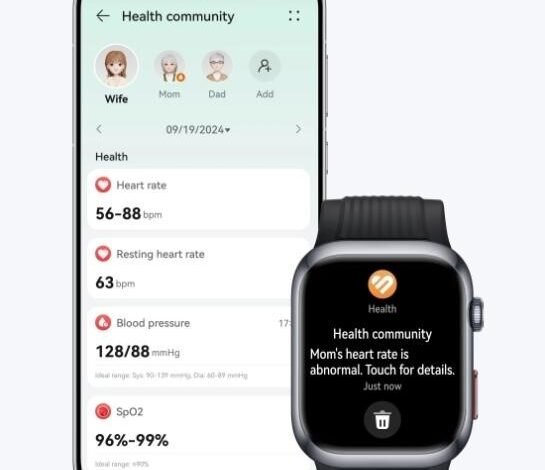How Does Hypertension Lead to Heart Disease?

Hypertension, commonly known as high blood pressure, is a silent yet dangerous condition that affects millions of people worldwide. It slowly damages the body over time, often with no symptoms until significant harm is done. One of the most critical areas affected by hypertension is the cardiovascular system. Specifically, high blood pressure can lead to severe heart disease, a leading cause of death globally. Understanding the relationship between hypertension and heart disease is essential for prevention and effective management.
What Is the Link Between Hypertension and Heart Disease?
How Does High Blood Pressure Affect Arteries?
When blood pressure is consistently high, it exerts excessive force on the artery walls. This constant high pressure can cause the arteries to become thicker and stiffer, a condition known as arteriosclerosis. Over time, this damage to the inner lining of the arteries leads to inflammation and the buildup of plaques—a process called atherosclerosis. These plaques can narrow the arteries, reducing blood flow to vital organs including the heart. This diminished blood flow can deprive the heart muscle of oxygen and nutrients, setting the stage for coronary artery disease.
Why Does Hypertension Overwork the Heart?
Hypertension means the heart has to work harder to pump blood through the body’s network of blood vessels. The increased workload causes the heart muscle to thicken and enlarge, particularly the left ventricle—a condition known as left ventricular hypertrophy. Although the muscle becomes thicker, it can also become less efficient, unable to pump blood as effectively as a normal heart. This overexertion can lead to heart failure, where the heart struggles to meet the body’s demands for oxygen and nutrients.
Can Hypertension Cause Structural Heart Damage?
High blood pressure can result in significant structural changes to the heart. Over time, the increased force of the blood flow can cause the heart’s chambers to enlarge and the muscular walls to become stiff. These changes impair the heart’s ability to function correctly. One potential outcome is heart failure, where the heart cannot pump enough blood to meet the body’s needs. Additionally, hypertension can lead to other structural issues like hypertrophic cardiomyopathy, further impeding the heart’s function.
What Are the Key Health Risks of Hypertension?
How Does Hypertension Contribute to Atherosclerosis?
Atherosclerosis occurs when plaques form on the artery walls due to damage from high blood pressure. These plaques restrict blood flow and can rupture, leading to blood clots. When blood clots form, they can travel to various parts of the body and obstruct arteries, causing critical issues such as stroke or a heart attack. The compromised blood flow from narrowed arteries also diminishes the oxygen supply to various body tissues.
Why Does It Increase the Risk of Heart Attack?
Heart attacks occur when the blood supply to part of the heart muscle is blocked. Hypertension accelerates the process of atherosclerosis, causing arteries to narrow and harden. If a plaque ruptures and forms a clot, it can completely block the artery, cutting off the oxygen supply to part of the heart muscle. Without immediate treatment, the affected heart muscle begins to die, resulting in a heart attack. The damage caused by hypertension thus greatly increases the odds of experiencing such an event.
How Can Hypertension Lead to Heart Failure?
Heart failure is a condition where the heart can’t pump enough blood to meet the body’s needs. Hypertension contributes to this by making the heart work harder to move blood against the heightened arterial pressure. Over time, this excessive effort leads to the thickening and stiffening of the heart muscle, impairing its pumping ability. Additionally, the constant pressure can harm the heart’s valves and structure, eventually leading to heart failure as the heart’s efficiency declines.
How Can You Prevent Hypertension-Related Heart Disease?
What Lifestyle Changes Help Control Blood Pressure?
Several lifestyle changes can effectively manage and reduce high blood pressure. Regular physical activity, maintaining a healthy weight, eating a balanced diet low in salt, and avoiding excessive alcohol consumption are key factors. Quitting smoking is also crucial, as tobacco increases blood pressure and damages artery walls. These changes not only lower blood pressure but also improve overall cardiovascular health, reducing the risk of heart disease.
How Can Technology Aid in Blood Pressure Monitoring?
Wearable technology, like the HUAWEI WATCH D2, can be a valuable tool in monitoring blood pressure. This smartwatch allows for 24-hour ambulatory blood pressure monitoring, providing real-time data and trends on blood pressure readings. Users can take on-the-go measurements, set up auto-monitoring plans, and receive detailed health reports. The advanced sensors and user-friendly design make it easier to track blood pressure consistently, aiding in early detection and better management of hypertension.

Why Is Regular Health Screening Crucial?
Regular health screenings are essential for detecting hypertension early and managing it effectively. Many people with high blood pressure are unaware of their condition until it causes significant damage. Routine check-ups allow for early intervention, which is critical in preventing complications like heart disease. Screenings often include blood pressure measurements, cholesterol checks, and other cardiovascular health assessments, enabling healthcare providers to recommend appropriate lifestyle changes or treatments.
Conclusion
Understanding how hypertension leads to heart disease is vital for prevention and management. High blood pressure damages arteries, overworks the heart and increases the risk of serious conditions like atherosclerosis, heart attack, and heart failure. Effective management includes lifestyle changes, regular monitoring with advanced technologies like the HUAWEI WATCH D2, which is among the best blood pressure monitor options, and consistent health screenings. Individuals can reduce their risk and maintain better heart health by taking proactive steps.





